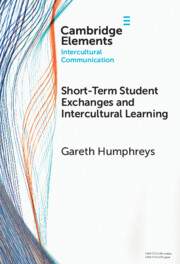Element contents
Short-Term Student Exchanges and Intercultural Learning
Published online by Cambridge University Press: 07 November 2023
Summary
Keywords
- Type
- Element
- Information
- Online ISBN: 9781009356671Publisher: Cambridge University PressPrint publication: 07 December 2023
References
- 5
- Cited by

